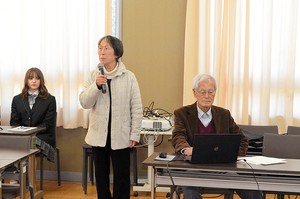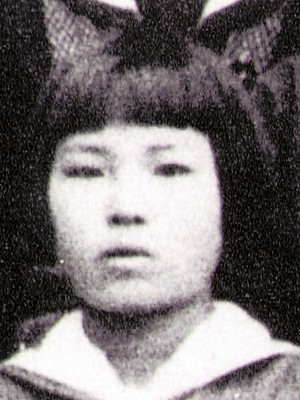Vox Populi, Vox Dei is a daily column that runs on Page 1 of The Asahi Shimbun.
April 2, 2021 at 14:01 JST
As a writer of this column, I often find myself having to hastily reread literary works I'd read before to refresh my memory, so I can double-check the plot and the protagonist's words.
My go-to aid for this task now is a free Japanese digital library called Aozora Bunko (literally "blue sky" or "open air" library).
I understand that the popularity of this site has grown phenomenally since the COVID-19 pandemic struck.
"Access surged around the first time the state of emergency was declared," said Yu Okubo, 38, a professional translator and a member of the site's management team.
Before the pandemic, the site was accessed about 100,000 times per day. Last spring, the number more than doubled.
The genre that has grown most conspicuously is classic children's literature. Access to Kenji Miyazawa's "Chumon no Oi Ryoriten" (The Restaurant of Many Orders) doubled, while Nankichi Niimi's "Gon Gitsune" (Gon the Little Fox) tripled and "Rapunzel" by the Brothers Grimm quadrupled.
I can well imagine how parents, trying to find books for their children who couldn't go to school, turned to this library.
The pandemic has also affected the annual rankings of popular classics.
Short stories such as Atsushi Nakajima's "Sangetsuki" (The Moon Over the Mountain, and Other Stories) and "Kumo no Ito" (The Spider's Thread) by Ryunosuke Akutagawa steadily rose in the rankings.
"Parents apparently favored short stories for reading aloud to their children, or getting them to listen to the audio version read by voice actors," Okubo noted.
Aozora Bunko was established in 1997, starting with just four titles, including Ogai Mori's "Takasebune" (The Boat on the Takase River) and Akiko Yosano's "Midaregami" (Tangled Hair).
A not-for-profit venture, it is run by unpaid volunteer data entry clerks and editors who are nicknamed "Aozora Kosakuin" (open air cultivation staff).
The online library's coexistence with the established publishing industry is still a tough challenge, but the community bookshelves open to everyone now boast more than 16,000 titles.
Come to think of it, the pandemic has transformed people's reading habits, even though the change is not as obvious as with eating and traveling.
I myself am spending a great deal more time reading e-books, free or not. Even after the pandemic ends, I don't think I'll ever be able to return to my pre-COVID reading habits.
--The Asahi Shimbun, April 2
* * *
Vox Populi, Vox Dei is a popular daily column that takes up a wide range of topics, including culture, arts and social trends and developments. Written by veteran Asahi Shimbun writers, the column provides useful perspectives on and insights into contemporary Japan and its culture.




















A peek through the music industry’s curtain at the producers who harnessed social media to help their idols go global.
A series based on diplomatic documents declassified by Japan’s Foreign Ministry
Here is a collection of first-hand accounts by “hibakusha” atomic bomb survivors.
Cooking experts, chefs and others involved in the field of food introduce their special recipes intertwined with their paths in life.
A series about Japanese-Americans and their memories of World War II